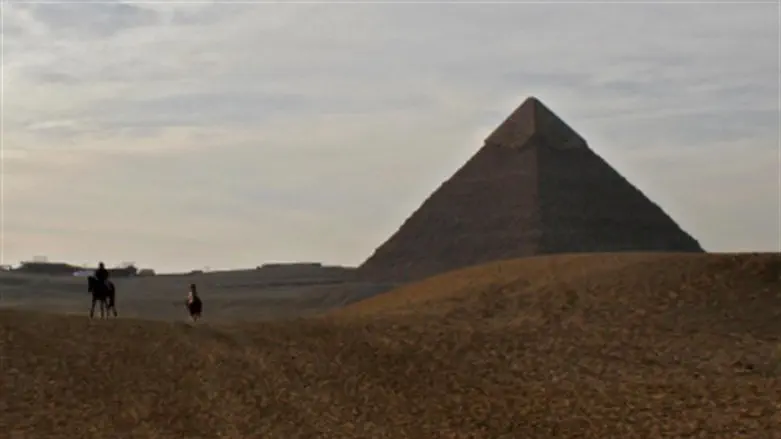
We read in our parsha(6:10-11):’Hashem spoke to Moshe, saying: Come speak to Pharoah, king of Egypt, that he send the Children of Israel from his land; Moshe spoke before Hashem, saying: Behold, the Children of Israel have not listened to me, so how will Pharoah listen to me?’.
Rashi comments:’So how will Pharoah listen to me?’:This is one of the ten kal-ve-chomers’- a fortiori arguments-‘in the Torah’.
The Maharal explains:’Moshe answered:If Bnei Israel would not hear these tidings, that were to their benefit, Pharoah, to whom they were לרעתו: to his detriment’- how much more so!’.
Rav Eliyahu Shlezinger proffers a different understanding of Moshe’s words:’True, Bnei Israel had not listened to my words, but this was- as stated (6:9)-’because of קוצר רוח ועבודה קשה: shortness of breath and hard work’.‘These two מניעות: reasons not to listen, did not apply to Pharoah, and, therefore, perhaps he will listen!’.
Rav Yehonathan Eybeschitz explains:’Moshe had the well-being of Bnei Israel in mind, in his reluctance to speak to Pharoah. ‘Our sages relate that Yona had sought to ‘escape’ from rebuking the people of Ninveh, out of fear that they would heed Hashem’s ‘warning’, and do Teshuva, and that would be a קטרוג: a grave indictment on Bnei Israel, who had not heeded the rebuke of their Prophets, and had not done תשובה.
‘This was the reason for Moshe’s ‘reluctance’ to go to Pharoah, and tell him to release Bnei Israel; for if Pharoah heeded Moshe, after Bnei Israel had refused to listen, then the wrath of Heaven would fall on Bnei Israel’.
The Chatam Sofer adds a wondrous insight into Moshe Rabenu’s words:’Moshe Rabenu ‘dared’ to say to Hashem:’Since Bnei Israel did not listen to this message, Pharoah MUST NOT listen to it!’.
Rav Pinchas Friedman explains:’Moshe Rabenu did not ‘refuse’ to do as commanded by Hashem: to go and speak to Pharoah; but he pleaded that, since Bnei Israel had not heeded his words, it should be decreed in Heaven that Pharoah also not hear them!
‘And, indeed, we read that Hashem acceded to this plea:(7:2-3):Go to Pharoah, that he should send the Children of Israel from his land; But I shall harden Pharoah’s heart’, so that he does not do so’.
Rav Friedman brings a beautiful חידוש: new insight into Moshe Rabenu’s words, immediately following his plea:ועני ערל שפתים: ‘And I have sealed lips’.
These words were not said with regard to his speech impediment, which would affect his speaking to Pharoah; they were addressed to Hashem!
Rather, said Moshe Rabenu: If you, Hashem, do not accept my plea to prevent Pharoah from heeding my words, after Bnei Israel had refused to listen, I will be, figuratively, ‘mute’, as I will be unable to defend them before You!
Concludes the Rav:And if you should ask: How can it be just that Pharoah is precluded from heeding Hashem’s commandment, and then punished for it?
The answer is that Hashem ‘knows’ that, were Pharoah to accede, he would not be doing so because he had repented, but only out of fear of punishment.
As he remained in his wickedness, he merited his punishment!
לרפואת נעם עליזה בת זהבה רבקה ונחום אלימלך רפאל בן זהבה רבקה, בתוך שאר חולי עמנו.
